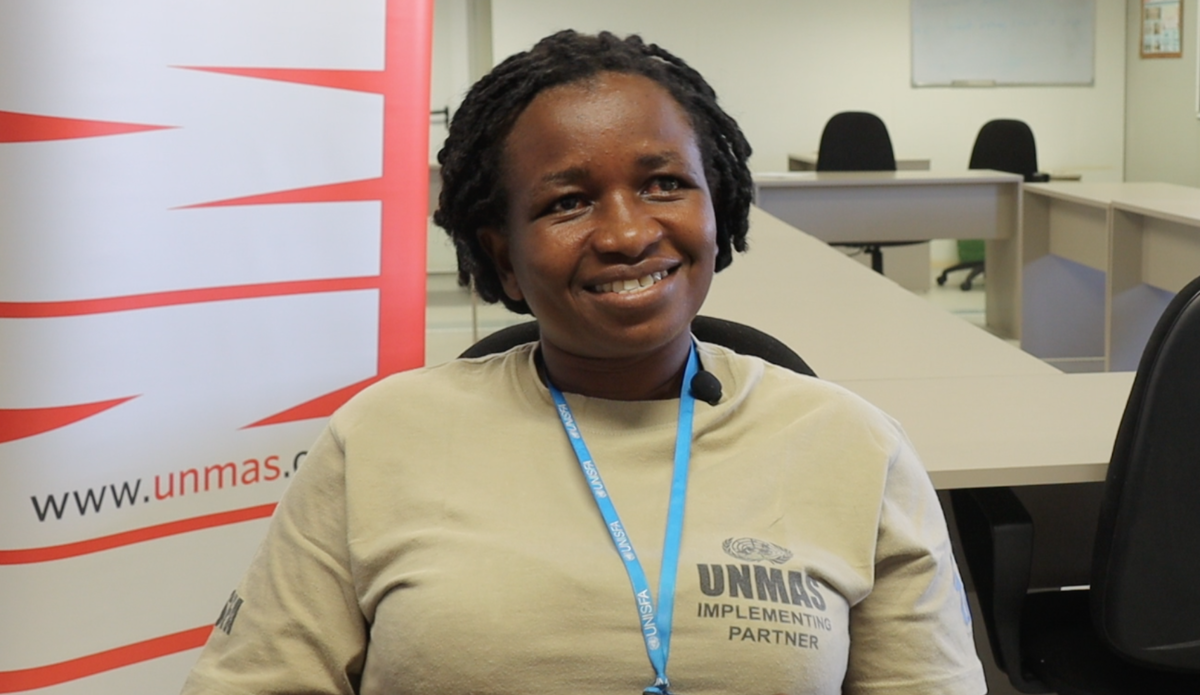What influenced you to work in explosive ordnance risk education (EORE) in Abyei?
My journey started in 2004 in my country, Uganda. Given the historical background and the various conflicts which affected my country, many people have been injured by explosives. Because of this, I have developed the love and need to work for my people and raise awareness about the danger of explosive hazards. It has been my dream to save lives and this is why I started working in raising awareness through risk education in contaminated areas. I have been in Abyei for three months now and have focused my work on ensuring that Abyei communities have all the necessary information to stay safe from explosive hazards.
What does gender equality in EORE mean to you?
Gender equality in EORE is a very important factor in our work because explosive hazards affect different genders in different ways. To me, gender equality is just the full and equal participation of women, men, boys and girls in keeping their communities safe. We have to encourage the women to participate in EORE sessions, as in some cultures women do not participate in community matters. There are different gender roles and that makes it necessary for us to be gender equal in our approach. Women participation in EORE is essential as they play the caretaker role in most families, looking after their children. In most cases, they send their children out there, especially the girls, to collect firewood or to fetch water. They must be enabled to give their children all the information necessary for them to be safe.
How do you address the different gender needs within the beneficiaries?
When we visit communities, we first learn about their cultural practices and beliefs. We then have to make sure that we meet these gender groups, especially the women and girls in line with the local culture and we hear their perspectives. To address their specific needs, we try to tailor our activities and approach. For instance, if the men or the boys are always available throughout the day while the women are in the farms, we first talk to the men and boys and inquire when it is possible to meet the women. We then organize community visits to meet with the women at the time when they are available.
How do you overcome cultural barriers?
A major factor to consider is that most communities where we work differ in terms of cultures and beliefs. There are some cultures where a man is not permitted to talk to a woman, so we try as much as possible to make sure we arrange the right teams to meet with the right gender groups. We arrange for a woman on our team to talk to the women in the community, in cases in which the culture does not permit the men to talk to the women. We always adapt to the cultural practices in the community.
How do you feel about your work in Abyei thus far?
I appreciate my work with UNMAS very much, because it is really putting into practice what gender equality really means. It is a pleasure for me, as a woman, to work amongst many men and have the ability to reach other women. I feel very encouraged by my colleagues and I hope my work is also encouraging other women in the world to apply to such jobs and serve their countries and communities.


